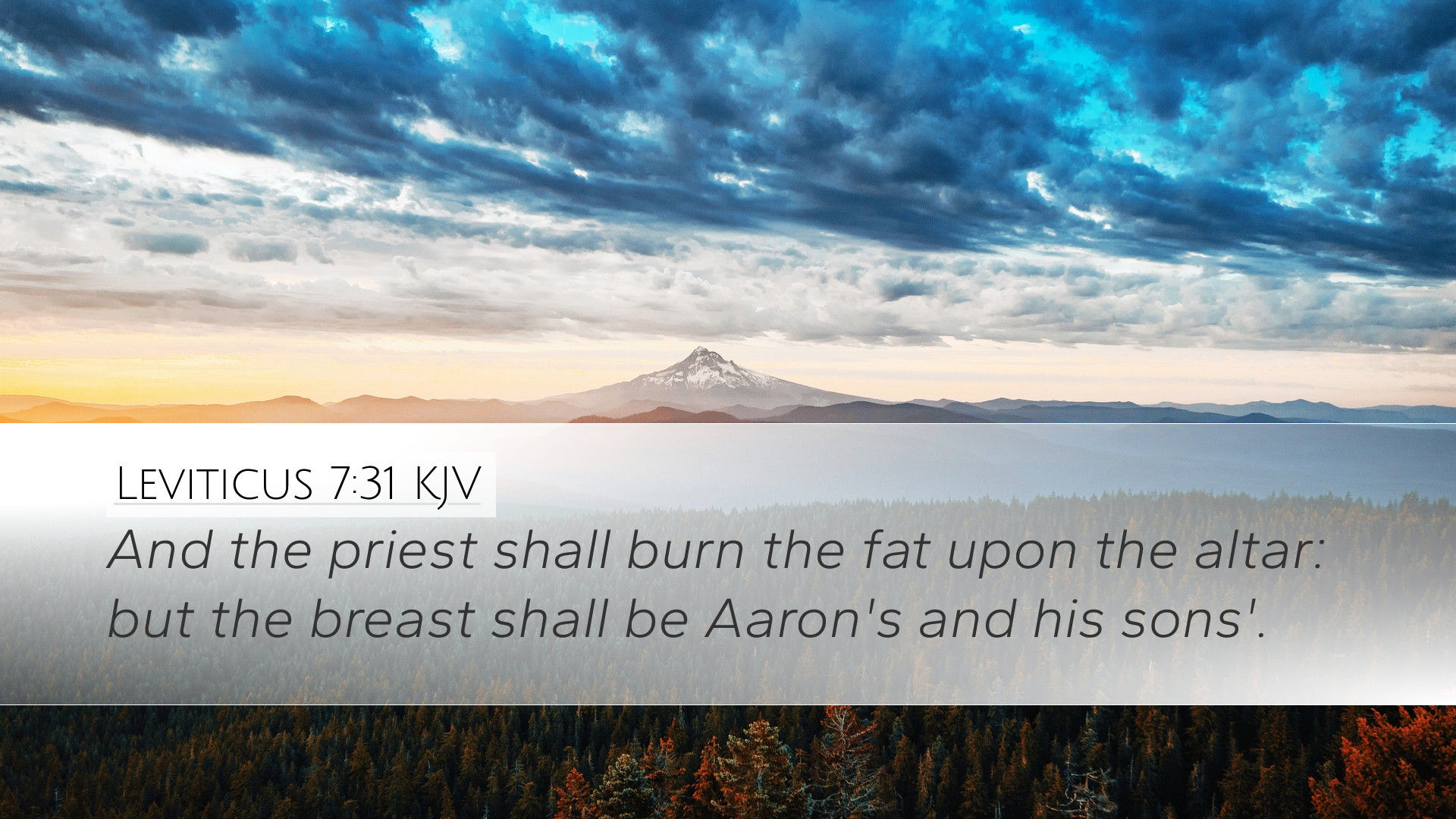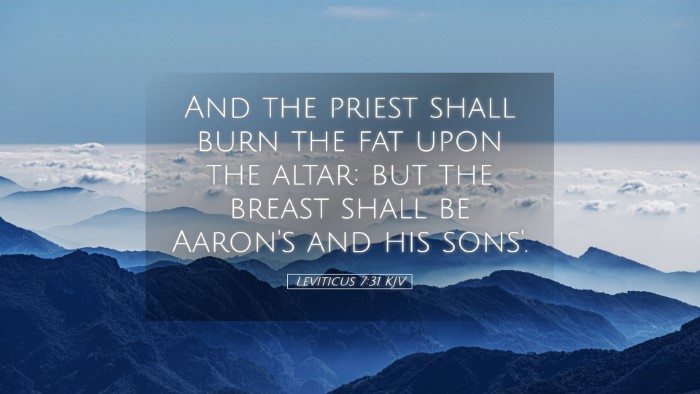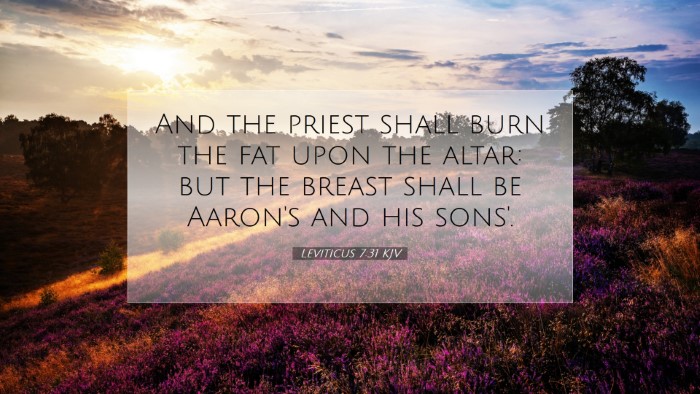Leviticus 7:31 - Commentary Summary
Leviticus 7:31 states: "And the priest shall burn the fat upon the altar: but the breast shall be Aaron's and his sons." This verse is part of the broader instructions regarding the offerings and sacrifices outlined in the Levitical laws, emphasizing the distinction between portions of the sacrifices and the roles of the priests.
Contextual Background
This verse is situated within a larger discourse on the offerings made to God, particularly the peace offerings. The sacrificial system established in Leviticus serves not only as a means of atonement but as an avenue for worship and communion with the Divine. The instructions regarding the sharing of the offering underscore the communal aspect of worship, the holiness of the priests, and the distinction between God’s provisions and the portion designated for human consumption.
The Role of the Priest
According to Matthew Henry, the priest’s duty to burn the fat upon the altar underscores the sacredness of the offering. The fat was considered the best part of the animal, symbolizing the richness of the offering. Henry notes that the act of burning the fat demonstrates the idea of giving the best to God, a principle that is foundational in worship.
Albert Barnes further elaborates that the priest acted as an intermediary between the people and God, signifying that the fat, once burned, was offered exclusively to God, thus establishing a balance between divine honor and the sustenance of the priests. The breast that belonged to Aaron and his sons illustrates the provision made for the priests, indicating their role in mediating the people's offerings to God while also being supported by them.
The Significance of the Portions
In examining the allocated portions of the offerings, Adam Clarke highlights that the breast and the right shoulder were given to the priests, symbolizing their office and status as set apart for God's service. The breast, as Clarke interprets, signifies the priest’s importance as the representative who presents the offerings before God, thus justifying the need for sustenance derived from the sacrifice.
Theological Applications
- Divine Provision: The instruction highlights God’s provision not only for Himself through the offerings but also for the priests, establishing a framework for communal support within religious practice.
- Offering the Best: The burning of the fat serves as a reminder for believers to offer their best to God, encouraging a spirit of generosity and reverence in worship.
- Mediation and Representation: The priest's role reaffirms the biblical principle of mediation, a theme that culminates in the New Testament with Christ as the ultimate High Priest.
Conclusion
In summary, Leviticus 7:31 offers profound insights into the practice of worship and the functioning of the priesthood in ancient Israel. By recognizing the significance of the offerings, the communal aspects of sacrifice, and the divine provision for the priests, modern readers can draw essential lessons on worship practices and the nature of God's covenant with His people. This verse serves to deepen our understanding of how the principles laid out in the Old Testament continue to inform theological discussions today.


